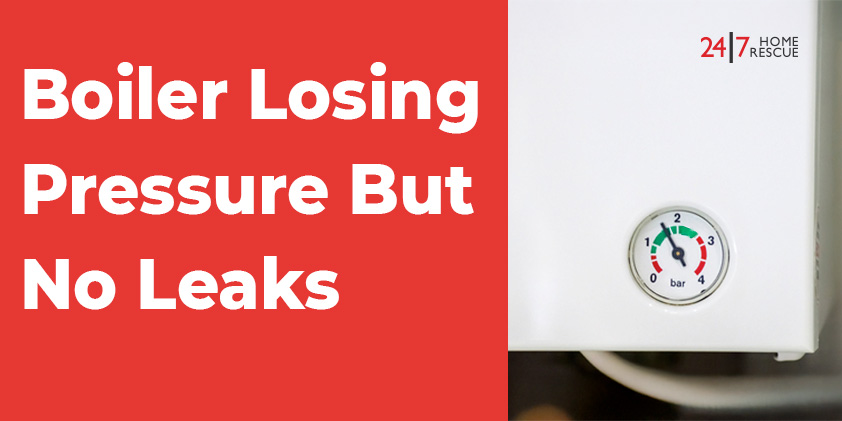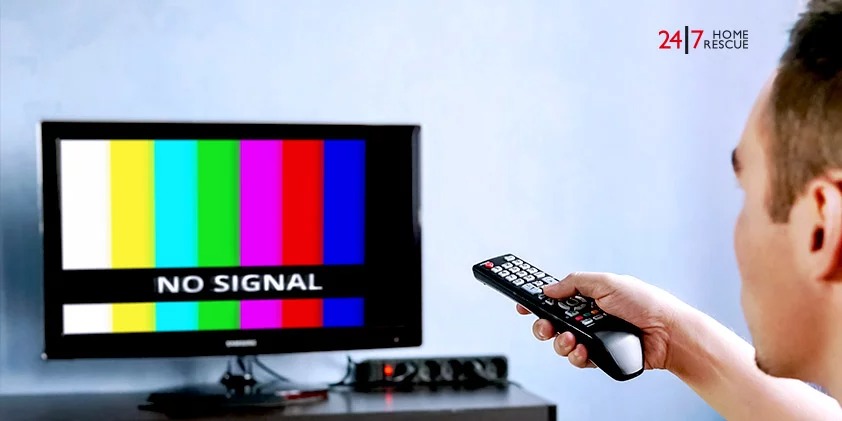
Why Has My Electricity Gone Off?
Are you wondering why there is no electricity in my house? You’re not alone. Many homeowners face sudden electricity loss and find it difficult to determine whether the issue is within their property or with the larger electrical grid. If your electricity suddenly went off, there’s no need to panic! Let’s explore some common causes, troubleshooting steps, and what to do next.
Table of Contents
Common Reasons Why There’s No Power in the House
1. Overloaded Circuit
An overloaded circuit is one of the primary reasons for no power in your house. This situation occurs when multiple high-power appliances, such as refrigerators, air conditioners, and heaters, are connected to a single circuit, drawing more current than it can handle. As a protective measure, your circuit breaker will trip, cutting off power to prevent damage.
To address this issue, unplug some high-demand devices from the circuit and reset your circuit breaker. Distributing high-power-consuming appliances across different circuits is advisable to prevent future overloads.
2. Faulty Wiring
Faulty or outdated wiring can significantly disrupt your electrical supply. Deterioration can occur due to age, pest damage, or improper installation methods. Signs of faulty wiring include flickering lights, a burning smell near outlets, and frequent circuit breaker trips.
Loose connections, frayed insulation, or previous DIY electrical work that didn’t meet safety codes can all contribute to power loss. Engaging a qualified Part P-certified electrician who can safely diagnose and repair the problem is crucial, ensuring your home’s wiring meets current safety standards.
3. Tripped Circuit Breaker or Fuse
If power is lost in only specific rooms, it may be due to a tripped circuit breaker or a blown fuse. Begin by checking your fuse box or circuit panel for any switches in the ‘off’ position or that have flipped downwards.
Resetting a tripped breaker is straightforward: flip the switch back to the ‘on’ position. If the breaker won’t stay on, unplug appliances from that circuit and try resetting it again. If the issue persists and you’re unsure how to proceed, consider consulting a professional for assistance.
Related Article: My Fuse Box is making buzzing noises.
4. Storm or Weather Damage
Have you recently lost power during a storm? Severe weather conditions such as lightning strikes, high winds, or flooding can cause significant damage to electrical infrastructure, including downed power lines and damaged transformers. In these instances, the problem often extends beyond your property and affects many homes in your area. It’s advisable to contact your electricity provider or visit their website for real-time updates on outages and estimated restoration times.
5. Equipment Failure
Sometimes, the cause of your power loss may be linked to faulty equipment rather than a larger electrical issue. Devices like power strips, extension cords, or individual plug sockets can malfunction over time. To troubleshoot this, try using a different power strip or plugging your devices into a different outlet to see if the problem persists. If replacing these items restores power, it’s a good indicator that they were the root cause of the issue.
6. Power Grid or Local Outage
In some cases, the lack of electricity may not be an issue within your home but rather a broader problem affecting your neighbourhood or locality. If you observe that electricity is out for multiple dwellings or your entire street, it is likely a local power outage caused by the utility company.
Check your utility provider’s website or utilise services like PowerCut105 to confirm this. Enter your postcode to identify your network operator and receive critical updates regarding the outage status and estimated times for restoration.
Quick Questions to Ask When Your Electricity Suddenly Goes Out
1. Have You Topped Up Your Prepayment Meter?
If your home has a prepayment meter, the first step is to check your balance. A loss of credit on this type of meter can lead to an unexpected power cut. Make sure to verify how much credit you have remaining; some meters may give a warning before disconnection, but it’s not always the case. Once you add funds to your account, your electricity supply should resume shortly thereafter. Keep an eye on your meter and consider signing up for alerts if your provider offers them.
2. Have You Paid Your Utility Bills?
Another common reason for an unexpected power outage is outstanding utility bills. If you’ve missed any payments, your electricity provider might have disconnected your service as part of their policy on arrears. Staying on top of your bills and expenses is essential to prevent this. If you’re unsure about the status of your account, reach out to your provider immediately for clarification. Additionally, organisations like the Citizens Advice Bureau offer assistance in managing your utility bills and can guide you on the following steps to reconnect your service.
3. Is the Power Out for Everyone or Just You?
It’s also crucial to determine whether the power outage is localised to your home or if it’s affecting your entire neighbourhood. Check in with your neighbours; if they are also without electricity, it may indicate a larger issue with the electrical grid rather than a problem with your home’s wiring. If it’s a widespread outage, you may need to wait for your utility company to resolve it. Conversely, if your neighbours have power, it may point to an internal fault in your home that requires further investigation, possibly involving a certified electrician.
How to Stay Safe During a Power Cut: Essential Tips

Power cuts can catch anyone off guard, especially at night or during extreme weather. Knowing how to respond safely is key, whether to a local outage or a more widespread issue. Follow these smart safety tips to stay protected until your electricity is restored.
1. Prioritise Safety in Emergencies
If there’s an immediate risk, like a fire, electrical hazard, or someone in medical distress during a power cut, call 999 immediately. This is the UK’s emergency number for situations requiring an immediate response from the police, ambulance, or fire service. Your safety comes first, so don’t attempt to fix anything hazardous alone. You can find more information on when to call 999 on the official Police UK website.
2. Turn Off Appliances, But Leave One Light On
Unplug or switch off electrical devices like ovens, irons, and heaters that could pose a danger when the power returns. Leave one light on as an indicator—it will help you know when electricity is back without constantly checking.
3. Use Torches, Not Candles
It’s best to keep a torch (battery-powered or wind-up) handy in case of blackouts. Torches are safer than candles, which can be a fire hazard, especially in homes with kids or pets. Don’t forget to stock up on spare batteries, too.
4. Avoid Alternative Heating Hacks
Your boiler may not work without power, but using gas stoves or hobs to heat your home is hazardous. These can cause fires or carbon monoxide poisoning. If you’re cold, layer up with blankets, or use safe, battery-powered heaters if available.
5. Keep an Emergency Phone Option
Most modern cordless phones won’t work in a power outage. Keep a traditional corded landline in the house or ensure your mobile phone is fully charged. A power bank can also be a great backup in extended outages.
6. Stick to Cold Meals or Takeaway
Avoid cooking with makeshift methods indoors, like open flames or portable grills. Instead, prepare a cold snack or order takeaway. It’s safer and much easier than risking an accident in low-light conditions.
7. Double Check Your Alarms
Security and smoke alarms usually have battery backups but may beep or reset after a cut. Once the power returns, test all alarm systems to ensure they’re working correctlyy again.
8. Consider Staying Elsewhere for Long Cuts
If your power outage is expected to last a long time, due to storms or infrastructure damage, consider staying with friends, family, or neighbours. Especially during winter, it’s safer and more comfortable to relocate temporarily.
9. Report the Power Cut
If the outage isn’t limited to your home, report it to your electricity network operator. You can call 105 or visit PowerCut105 in the UK to check and report outages. Your energy provider may also send updates and guidance via text or email, so keep your phone handy.
Conclusion
Power outages can be unsettling, and it’s natural to feel anxious during them. However, knowing the proper steps can help you feel calmer and more in control. Being prepared makes a difference, whether it’s checking your circuit breakers, contacting your electricity provider, or ensuring your safety during the outage.
Exploring additional support options can be incredibly beneficial if you ever feel uncertain or want extra reassurance for future emergencies.
While power cuts are not covered, 24|7 Home Rescue’s Home Emergency Cover is here to assist with a range of domestic issues, including plumbing and electrical problems, as well as home security concerns. This way, you can rest assured that unexpected emergencies won’t leave you alone and unprepared. Visit our Home Emergency Cover page to learn how to safeguard your home today from unforeseen emergencies.

Home Emergency Cover
Safeguard your property against unforeseen circumstances with Home Emergency Cover from 24|7 Home Rescue.
At 24|7 Home Rescue, we aim to keep our blogs accurate and helpful at the time of publication. However, details such as images, services, or product information may change. Content is for general information only and not professional advice. For the latest updates, please review our Terms & Conditions or contact us directly. 24|7 Home Rescue accepts no liability for actions based on outdated or incomplete content. Our team is always happy to help with any questions.











